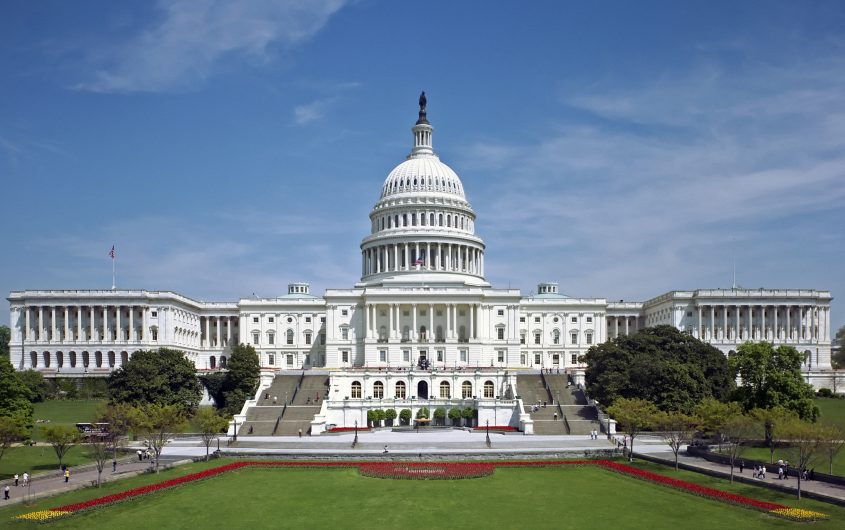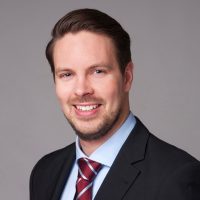
Understanding the U.S. from the American-German Situation Room
Christian Patz
Institute for Security Policy at Kiel University
Christian Patz was a American-German Situation Room Fellow in January-February 2018.
He is a researcher and currently serves as Interim Head in the Conflict Analysis and International Crisis Management Program at the Institute for Security Policy at Kiel University (ISPK), where he focuses on German Foreign and Security Policy and the role of international and regional organizations in peace and security, with a special focus on crisis and conflict management in Africa. As part of a research project supported by the German Ministry of Defense, Mr. Patz is currently working on an assessment of Germany’s role in the United Nations Multidimensional Integrated Stabilization Mission in Mali (MINUSMA). Previously, he was a consultant at the Directorate-General (S) for Crisis Prevention, Stabilization and Post-Conflict Reconstruction for Deutsche Gesellschaft für Internationale Zusammarbeit (GIZ).
Christian Patz received his MA in political science at Christian-Albrechts-University Kiel. For his Ph.D. project he examines the prospects and pitfalls of UN cooperation with regional organizations as security providers, particularly in conflict-prone regions of Africa.

Florian Wätzel
Institute for Security Policy at Kiel University
Florian Wätzel was an AICGS-GMF Situation Room Fellow in January-February 2018.
Florian Wätzel is a researcher at the Institute for Security Policy at Kiel University, where he focuses on security affairs in the Middle East. Previously, he served as an analyst for a political risk consultant firm, supporting projects in the Middle East and Southeast Asia for clients from business, and the governmental and NGO sectors.
Florian Wätzel studied political science at Universities in Kiel and Copenhagen, and Arabic language in Damascus and Sana’a. He is currently working on a PhD project on the organizational dynamics of Jihadist groups in Iraq and Syria.
In early 2018, we spent four weeks as fellows of the American-German Situation Room (AGSR) in Washington, DC and New York City. The objective of our visit to the AGSR was twofold: First, we wanted to develop a better understanding of the Trump administration’s foreign and security policy trajectory as well as its potential consequences for Europe’s—especially Germany’s—role in the transatlantic relationship. Throughout its first year in office, the Trump administration has made it clear that its approach to regional conflicts in the Middle East and Africa and its position toward multilateral organizations and frameworks, with their existing civilian and military instruments of conflict management, will not follow the line of the previous administration. Second, we sought to engage in discussions with U.S.-based academics and experts to further our PhD research on recruitment in jihadist groups (Waetzel) and international and regional efforts to support peace operations and stabilize post-conflict zones (Patz). To connect the two, we wanted to use our time as fellows of the AGSR to get a clearer picture of the impact of changed U.S. policies for both our fields of research.
With these goals in mind, the time in the AGSR provided us with numerous occasions for interviews and informal conversations and allowed us to benefit from Washington, DC’s unique concentration of academic researchers, think tanks, and government institutions, whose work is shaping the academic and expert discourses in our respective fields of research. AGI and GMF assisted us in connecting with researchers, experts, and former policymakers concerned with our research subjects and helped us gain access where our own contacts fell short. Working out of the GMF’s offices, we were also able to meet and share perspectives with colleagues working on related research fields. Our schedules left room to attend several events by think tanks such as the United States Institute for Peace (USIP), the Middle East Institute (MEI), and the Center for Strategic and International Studies (CSIS). Additionally, visits to the Pentagon and Capitol Hill allowed us to develop a better understanding of the history and inner-workings of both institutions.
Coinciding with our arrival in Washington, DC, the failure of Senate Democrats and Republicans to come to an agreement over the DACA program triggered a government shutdown. Albeit brief, the shutdown served as a testimony and symbol of the rising polarization and extreme partisanship of the political landscape, something which also became a daily topic that we encountered not only in the media, but also during conversations and exchanges with colleagues and think tank experts. We could not escape the impression that liberal America was finding itself somewhere between fatigue and revolt in the face of perceived institutional dysfunction, contempt for democratic processes, and political stonewalling. Conservatives, despite widespread belief that their president is somewhat off-brand, seemed more positive. During a visit to the Heritage Foundation, widely viewed as the nation’s leading conservative think tank, we learned that for conservatives, the issues with the president are more often over style than substance. The emphasis here was clearly on the fact that—despite the controversies—central projects on the conservative policy agenda had not only been picked up, but already implemented by the president and his administration.
Leaving Washington, DC, the second leg of our trip took us to New York City, where we met United Nations representatives for discussions on regional trends in the activity of terrorist groups such as the Islamic State, shifts in global and regional counter-terrorism activity, and UN peacekeeping operations in the Sahel, especially Mali. Perhaps the most interesting meeting we had during the fellowship was with former U.S. ambassador to Syria Robert Ford, who not only hosted us but reserved plenty of time and opportunity to discuss the Syrian crisis, U.S. policy toward the Middle East, and the broader challenges of U.S. and European foreign policy in the region and beyond.
The AGSR provided us with the room and support to make new contacts, build and develop personal networks, and obtain access to a wide range of perspectives and analysis to get a better understanding of the trends of debates over the trajectories of U.S. foreign, security, and defense policy and its implications for Europe and the transatlantic relationship. We are grateful to the GMF and AGI staff for welcoming us and the help in making our time as AGSR fellows a success.








